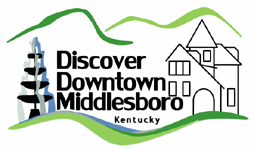 |
| Molly Theobald with the Appalachian Regional Commission speaking at the Heartwood Center in Abingdon. |
Passage
Through the Gap Partnership Launched at Appalachian Gateway Communities Workshop
Representatives
develop action plan to improve economic competitiveness by capitalizing on the
area’s natural and cultural assets
MIDDLESBOROUGH,
Kentucky. (Jan. 18, 2014) – A team from Kentucky, Tennessee, and Virginia participated
in a three-day workshop designed especially for towns and communities bordering
national or state parks, forests, and other treasured public lands. Working
with national and regional experts on sustainable tourism, economic
development, the arts, natural and cultural resources, transportation, and
branding, the 7-person team crafted a new vision that focuses on the unique
Appalachian assets that make the area surrounding the Cumberland Gap National
Historical Park an appealing place to live, work and recreate.
The
partnership of the Appalachian Regional Commission, the National Endowment for
the Arts, The Conservation Fund, and The National Trust for Historic
Preservation convened the program. With partnership and relationship-building as
essential elements to the Appalachian Gateway Communities Regional Workshop,
each of the eight participating communities – ranging from Alabama to Virginia
– formed a diverse team that included a public land manager, elected officials,
business and tourism representatives, civic leaders, and community arts
representatives.
This
first-of-its-kind convening brought together leaders from multiple communities in
our area. The City of Middlesborough sent Mayor Bill Kelley and Discover
Downtown Middlesboro Executive Director Isaac Kremer. The Town of Cumberland
Gap was represented by Toni Winston. Arts in our area had a presence thanks to
Denise Wanscott with Union College and Barbourville Tourism, and Scott Freeman
with the newly formed Magic City Collective in Middlesborough. Our public land
manager representative was Pam Eddy from the Cumberland Gap National Historical
Park. Finally, Debby Spencer who has extensive experience promoting ecotourism
and cultural tourism in our area participated.
Early
in the workshop the team recognized that despite having great assets that too
many people who live here don’t realize what we have and the story of our
assets is not told to visitors well enough. The Passing Through the Gap
Ambassador Program was formed in respond to this marketing and communication
challenge that we face. In the coming months we will study models from other
areas and launch a program here, likely in June, to help train residents and
front-line employees in how to interact with visitors. Participants will be
given an immersive introduction to all that our area to prepare them to serve
as Ambassadors.
Isaac
D. Kremer, Executive Director of Discover Downtown Middlesboro said, “We went
to Abingdon as a loose confederation of like-minded people and left as
partners. The story of who we are as Americans started with the people who first
passed through the Cumberland Gap. Sharing that story with visitors in new ways
has the potential to transform the economy of our area.”
“The
Passage Through the Gap Partnership was an ideal candidate for the Appalachian
Gateway Communities Initiative because of the terrific natural and cultural
resources and the emphasis of the arts in its community’s plans,” said Vice
President of Sustainable Programs and Director of The Conservation Fund’s
Conservation Leadership Network, Kris Hoellen.
“It’s our goal to help communities foster valuable partnerships,
reinforce development plans that balance environmental and economic goals and
provide technical assistance to enable places like Southeast Kentucky,
Southwest Virginia, and Eastern Tennessee to become even more vibrant and
thriving communities.”
Participation
in the workshop also makes the Passage Through the Gap Partnership eligible to
apply for seed grant funding from the Initiative to implement the action
plan.
The
Appalachian Gateway Communities Regional Workshop is part of an initiative
developed by the Appalachian
Regional Commission
and the National Endowment for
the Arts. Since 2007, the Gateway Initiative has helped
gateway communities across Appalachia expand tourism and other economic
development opportunities through community assessments, tourism planning
workshops and grants for project implementation. The Conservation Fund and the National Trust for
Historic Preservation
have partnered to strengthen the leadership capacity of towns, cities and communities
that neighbor publicly protected natural and recreational lands in distressed,
transitional or at-risk counties.
The
workshop was held at the Heartwood Center in Abingdon, Virginia. Later this winter, another Appalachian
Gateway Communities workshop will take place at the National Conservation Training Center in
Shepherdstown, West Virginia.
About the Appalachian
Regional Commission
The
Appalachian Regional Commission (ARC) is a regional economic development agency
that represents a partnership of federal, state, and local government. Established by an act of Congress in 1965,
ARC provides funding for several hundred projects each year in the Appalachian
region, in areas such as business development, education and job training,
telecommunications, infrastructure, community development, housing, and
transportation. www.arc.gov
About the National Endowment
for the Arts
The
National Endowment for the Arts (NEA) is the largest annual funder of the arts
in the United States. An independent
federal agency and the official arts organization of the United States
government, the NEA has as its mission to support excellence in the arts; bring
the arts to all Americans, and provide leadership in arts education. The NEA awards more than $100 million
annually, investing in every state. www.arts.gov
About The Conservation Fund
At
The Conservation Fund, we combine a passion for conservation with an
entrepreneurial spirit to protect your favorite places before they become just
a memory. A hallmark of our work is our deep, unwavering understanding that for
conservation solutions to last, they need to make economic sense. Top-ranked,
we have protected more than 7 million acres across America. www.conservationfund.org
About the
National Trust for Historic Preservation
The
National Trust for Historic Preservation, a privately funded nonprofit
organization, works to save America’s historic places. For more information,
visit www.PreservationNation.org.
# # #

No comments:
Post a Comment